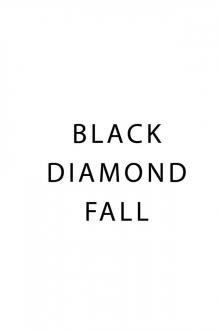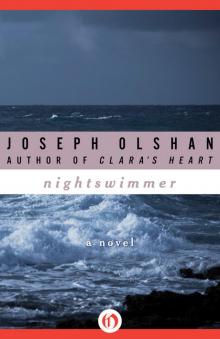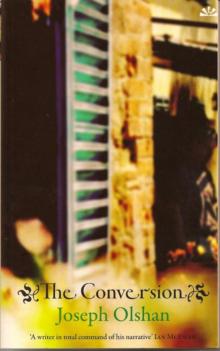- Home
- Joseph Olshan
Nightswimmer Page 5
Nightswimmer Read online
Page 5
I was shivering by the time I arrived home. I took a comforter down from the upper reaches of the closet; and it was the oddest sensation, climbing into bed and trying to stay warm in the middle of August amid the smell of mothballs. And as I lay there trying to warm myself, I wondered if some piece of him had managed to live on inside me, dormant for all these years until you came along. Because I was suddenly remembering details and situations I hadn’t thought of in so long.
I’d first heard of him as this crazy grad student in philosophy who loved to swim alone at night in the fifty-meter pool, a guy who’d already been All-American in college water polo at Stanford and had been invited to work out with U.C. Santa Barbara’s water polo team. I’d heard about how his activities, well known to the maintenance guys, were too much admired to be reported to Campus Security. The first afternoon I ever locked eyes with him, I’d gone home and nearly wrecked my closet looking for my favorite LONG COURSE NATIONALS T-shirt that an acquaintance of mine had brought me back from Tennessee. When I arrived at the pool that night I’d noticed the chain-link gates were slightly ajar and heard the unmistakable splashing rhythms of someone doing butterfly.
I ventured just inside the enclosure, saw one silver depth lamp illuminating a swimmer performing that power stroke that can be executed only by the most conditioned of athletes. I watched him rip out of a turn and start weaving through the water on his way back, and I listened to the thunderous sound of his dolphin kick. It is difficult to keep up butterfly for more than a hundred meters, harder still to surpass two hundred. But there he was, turning over fifty-meter lap after fifty-meter lap, his stroke long and steady. I kept waiting for his rhythm to flag, for his energy to wane, but his speed remained constant for three hundred, four hundred, five hundred meters. When he finally stopped, I left the shadows and ventured on deck.
“Hey, Will.” He saluted me and then his arm slapped on the surface of the water. “What are you doing here?”
How the hell did he know my name already?
A moment later, he had vaulted from the pool, had crossed his arms over his chest and was darting through the chill air toward the shower room, his dense upper body giving short fatless jerks as he moved. Noticing my bewildered expression, he said, “Don’t look so shocked. I’ve been sitting in on The Divine Comedy,” referring to an overcrowded graduate lecture being taught by a visiting scholar from Yale. “I’ve been sitting a few rows behind you. Now get a hit of that night jasmine, will you.” He passed me with a playful slap on the forearm, leaving it tingling with droplets of water. “Pretty strong?”
Maybe he’s just being friendly, I said to myself.
But then he continued, “Why don’t you give me a few minutes … hang by the pool. I’ll be right back.” And so, terribly nervous, I waited for him out in the cooling night air, smelling the jasmine and even the pittosporum trees, until he came back in a pair of loose green sweatpants and a V-neck T-shirt, closed the chain-linked gates and secured them with a padlock.
“Some night when the weather gets itself right again, I’m going to sleep out in the pool,” he said as we began strolling towards the parking lot. “Haul in one of those plastic rafts, lie out and count everything up there I see. What do you think of that?”
“I’ve heard about you,” I said, stopping. “You’re the guy who swims at night.”
He gave no reaction other than automatically increasing his pace. “So what are you up to, tonight?”
I shrugged.
“Take a ride with me,” he cajoled. “Yonder go the wheels.” He pointed. The Volkswagen Beetle was illegally parked a few yards away in a faculty spot. A Harvard decal was affixed to the back window, and there was a bumper sticker for Save the Whales as well as a three-pronged peace sign—obviously plastered to the chrome bumper during Vietnam.
“Did you go to Harvard?”
“Belongs to my old man—he went. They drove it out here from Boston in ’65.”
“That where you were born?”
“Mass General Hospital.”
The cramped interior of the car reeked exotically of dank vinyl and carpeting. A frayed umbrella lay in the backseat. He fired up the car and we began driving without an agreed-upon destination. I suppose I didn’t really care where we were going. For a while we followed the circuit of campus roads, passing saltwater lagoons and towering Australian eucalyptus that punctuated the sandstone quadrangles of the University of California.
Something was rolling around the floor. I finally looked down to find an old pulpy orange. I batted it back and forth with my feet.
“How about we head up San Marcos Pass,” he finally suggested.
“Isn’t that kind of far?”
“You got someplace to be?”
“Not really.”
“What’s that burning smell?” I asked when we were halfway up to the Santa Ynez Mountains.
“Needs a new clutch.” His eyes remained riveted to the road.
“Will we make it?”
“I do this drive a couple times a week. It’s been hurting like this for a month or so. We’ll more than likely run out of gas.” He was squinting at the fuel gauge. Suddenly letting go of the steering wheel with his right hand, he deftly reached around into the backseat for the umbrella, which he then brought forward, choking the lower portion down near the tip.
“What the hell are you doing?” I asked as he banged the metal point on one of the glass circles covering the dashboard. He shrugged as he tossed the umbrella behind him. “If you don’t bang on it, it won’t register.” He leaned forward again and studied the dial. “Eighth of a tank. Jeez, I didn’t realize it was that low.”
“Are you doing this on purpose?”
He leered at me and I noticed how long his lashes were. “Look, it’s faulty. Sometimes I forget to check it. I get distracted. You’re actually the first person I’ve ever brought up here with me.” He suddenly seemed bashful. “I usually come up here to get away from everybody.”
The burning smell of the faltering clutch miraculously vanished as soon as we reached the summit of San Marcos Pass. He pulled off the road onto the dirt shoulder. If we’d kept going, the road would have begun a steep descent into the desolate Santa Ynez Valley, a region that people say resembles the East African plains.
Two thousand feet above sea level, we leaned against the hood of the car and peered up at the stars. Overhead, clouds were shredding themselves into rags. You could see the firmament better, the air was so much warmer up there in the mountains than it was down by the coast; and breezes riffling through the chaparral were spiked with sage. We stared out toward the black outlying mass of the Pacific, where a lighted strand of oil derricks, hugging the bend in the coastline, draped down toward Los Angeles like a bejeweled, celestial runway.
Something strange happened to me as I stood there on that mountaintop. Only years later did it seem portentous. But that night, looking at the panorama with him, I actually abandoned myself. I became the distance, I became everything I saw except for who I was. No longer myself, I got frightened that I would never be able to reenter my own body. Was this some kind of premonition of his vanishing and of what would eventually happen to me? Was it some little gremlin out there, tempting my soul to disembody, like one of those Chumash Indian spirits that supposedly gather up the coast at Point Conception and fly across the Pacific Ocean with the speed of darkness?
But I was yanked back to myself when I felt his arms winding around me from behind. And I jumped.
“What’s wrong?” he said.
At a momentary loss to explain, I said, “Nothing, just a little dazed.”
He twirled me around, kissed me once and, parting his lips, took mine just inside of his. How could he so boldly assume that I would allow him to do that? He just didn’t care.
I was elated as we drove back toward the city of Santa Barbara. After the engine sputtered and failed, gravity pulled us down the mountain road, and it was like being in a glider, hovering in
wind drafts above a mountain range, hoping for a flat valley in which to put down. He was adept at maneuvering the car around all the hairpin curves that remained on the descent. He took the last two much faster than safe, the Volkswagen’s wheels bellowing and nearly slithering off the road.
“You can come down off the roof now, Will.” He grinned, as the car coasted into the flats and finally stopped a quarter mile from a BP station. He got out and pushed the rest of the way while I steered. We finally edged into the gas station, wheels squeaking over the well-oiled smoothness of the concrete islands.
As he pumped the gas I watched him talking to a young, skinny attendant. They were standing rather close to each other while he held the nozzle in the tank, and he kept grinning and gesturing with his free hand. And I actually felt jealous that he might be flirting.
That scared me. I sat there half wishing he’d drive me back to my car so I could go home and try to unravel my emotions. But then he jumped in, and as we drove off I found myself unable to look at him. Finally I couldn’t help myself and glanced over. He was peering at me, despite the fact that he was supposed to be driving, and the fervor in his black eyes was startling. He roared with laughter and I let my head fall on his shoulder.
“You’re soaked,” I commented.
“I worked up a sweat, pushing you,” he boasted. “I think I need a swim.”
“Where?”
“Where do you think?”
“The pool?”
“Noooo.” Then he tilted his head toward the ocean, as though it were a given.
“I’m not going in there at night. It’s dangerous at night.”
“Says who?”
“No way am I going in!”
“Even if I tell you I’m a certified beach guard? Even if I promise to bail you out if you get in trouble?”
“A lot of good that’s going to do if you’re in trouble, too.”
We suddenly swerved into a mini-mall, notable for a 7-Eleven that sold soft drinks out of a fountain—rare in 1981—as well as a chartreuse-colored thing called a Slurpee. He told me he’d be back in a minute, threw the brake, trotted around the front of the car, jogging down the row of shops past the 7-Eleven to a small lighted storefront. He reappeared a moment later with a small brown bag, asked me to open the glove compartment, where I’d find a Swiss Army knife. He yanked a lime out of the bag and then a bottle of Cuervo tequila.
He switched off the engine, commandeered the knife and cut neat, practiced lime wedges, which he then balanced on top of his squeezed-together knees. He scored off the plastic bottle cap raising the tequila to his lips, and threw back a hard slug. He sucked a piece of lime, smiled at me with the green rind between his teeth and said, “Kiss me.”
“Give me that.” I wrenched the bottle and the lime from between his legs and took a gulp of tequila.
I was feeling numb and daring by the time we reached West Beach. The moonlight stretched like a bridge over the water and went as far as the Channel Islands. A collection of Speedos clustered on the floorboards of his car, and combing through them, he gave me the skimpiest, most revealing one he could find. “I want to see how you look in that,” he said.
“But I’m pretty wrecked,” I complained.
“Good, because you might not have done this otherwise.”
No, but I would’ve done you, I thought to myself. Even without the tequila shots.
He peeled off his clothes, and I looked at him unclad for the first time: the olive complexion with a cool bronze patina from months of casual sun-bathing beneath an unobstructed sun, large sensual nipples the color of caramel, each with a sparse sprouting of dark hair. I wondered if I’d ever be able to absorb what his body had to offer, the twin mounds of pectorals, where his back flared wide, the dark obscenity of his armpits, of his groin.
Before I had even taken my shirt off, he was in his Speedo, carefully watching me undress. And when I stood there, naked finally among the shadows on the beach, he shut his eyes halfway, reached forward, combed his fingers through my chest hair. In response, I made my hand into a tight rake, ran it up the scruff of his neck until it caught on his salt tangles. I slowly wound his head back until a groan inadvertently escaped him and I kissed his taut, corded throat. Then we fell to the sand and started going at it.
I ran my tongue along his tan line, buried my face in the tangle of pubic hair, gulped the sac that was as tight as a pear. “Baby, we’ve got to stop,” he moaned finally, giving a long tender kiss. “For crying out loud, we can’t do this here.” A moment later, I was watching him dive in and disappearing through a crashing comber.
I hesitated, of course, but I had to follow.
Once I’d broken through the chill black wall of the first wave set, I sobered up. As I swam out beyond the breakwater, the ocean still seemed so amorphously deep and wide, an even greater mass than it appeared by daylight. Waves rolled over me like tall dark shadows. And there were times during that first reckless swim that I lost track of where I was in relation to the beach or the outer islands thirty miles across the channel.
But he was vigilant, never swam too far ahead of me. That first night, with each stroke away from shore, I felt as though I was trespassing beyond my own instinct for survival. Even though in the coming weeks we’d venture out even farther, sometimes with surfboards, sometimes sharing a single raft, I knew we could commit a fatal error of judgment that would allow us to be swept under, hauled back to our moment of entry into the world. The whole uncertain future could be decided by a single, wayward glance.
That first feast of another man’s body is both joyful and confusing. I want to fill myself with everything, every nipple and biceps and every inch of cock, but I want to savor it and that demands more than one occasion. When I know a man for a while, when the parts of his body become familiar to me, as his own scent that I carry on my clothes, on my forearms, when he ceases to become just a name and becomes a familiar man, that’s when the real sex begins. By then he’s told me private things, and I know something of his story; and when I reach over to touch him in a bed that we’ve both slept in night after night, nothing casual, no matter how galvanic, can rival the power of that touch. For that touch is now encoded with the knowledge that I could lose everything, and movement by movement, as I make love, I’m more completely aware of what I stand to lose.
SIX
THE TELEPHONE RANG. DRENCHED in my own sweat, I kicked off the quilt and grabbed the receiver. “Hello,” I said, “hello,” as I heard the noisy background of what I assumed was a bar. “Is he there?” somebody finally asked.
“Is who here?”
“You know who.” The person sounded more sad than menacing.
“What number are you trying to get?” I asked and then whoever it was slammed down the phone.
I was unable to sleep after that. I do get my share of crank phone calls and wrong numbers. This must happen more in cities, where within a single exchange there is a higher density of numerical sequences that are slight variations of one another, and it’s easier to reach a working number if anyone dials incorrectly, or randomly. However, I had the feeling that the person who’d called somehow knew me.
I tried to get up and begin working on a travel article that I was writing for the Los Angeles Times, but felt too weary and distracted to concentrate. I ended up heading over to the New York University pool. I swam a straight 2,500 meters, pushing the last 500 as hard as I could, in pursuit of an endorphin fix. I was toweling off in the locker room when I overheard two guys discussing Splash, a recent addition to the bar scene that, on certain nights of the week, featured go-go boys in G-strings who took showers in front of the patrons. Splash was also known to play video footage from previous weekends at Fire Island. “Last night I saw myself at the Morning Party,” one of them remarked.
Listening to them, I realized that Western life was truly becoming saturated with all new kinds of media. And that people were becoming less selective about what images they chose to p
reserve—now every stupid bacchanal weekend at the Fire Island Pines was certain to be recorded by somebody. I tried to imagine the sheer space taken up by memorabilia all over the world, and it occurred to me that the ratio of what was recorded to what had actually happened was constantly growing at an alarming rate.
Not much of a barfly myself, I’d never actually been to Splash. But now I was curious to see what it had to offer in the way of Morning Party footage. I left word on Peter Rocca’s Voicemail, suggesting that we go out for a drink later that night.
“Gee, I wonder if that T-shirt could be any tighter on you,” I said to him the moment he strolled in and gave the crowd his onceover. He grinned tensely at me, then glanced down at his chest straining against a skin of gray cotton, and at the tips of his shiny cowboy boots. “Shaddup,” he said. “You don’t come to these places to be inconspicuous.”
“So you’re going to start man-hunting right in front of me.”
“No better, no worse than somebody else I know.”
“Now, wait a second, Peter, let’s get this straight. You’re the one who said ‘no commitments.’ ”
“Only because I’m not yet commitment-free … Jesus, what’s with you tonight, anyway?”
“I’ve been having trouble sleeping, for one thing.”
“Well, if it stays like this and you need a prescription, let me know.”
It dawned on me that having a doctor for a friend could be handy. “Do any drugs exist that can wipe out selected memory?” I asked.
“Believe it or not, the best way is still electroshock.”
Electroshock, I admitted, might be pushing it just a little bit.
“Particularly if memory is how you make your living.” Peter put his elbow on my shoulder. “So why haven’t you been sleeping?”
“Let me ask you something. What would you do if one of your patients came in here right now and saw you dressed like this?”

 Black Diamond Fall
Black Diamond Fall Cloudland
Cloudland Nightswimmer
Nightswimmer The Conversion
The Conversion